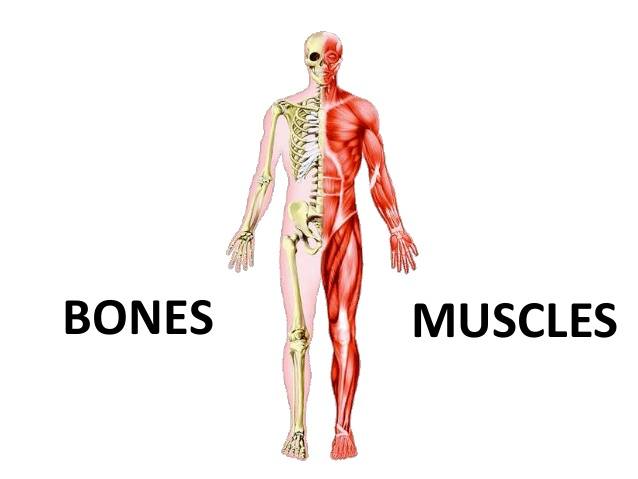Walking for just 30 minutes a day offers a surprisingly long list of health benefits, from bolstering cardiovascular health to enhancing mental well-being. This simple yet effective form of physical activity is accessible to nearly everyone and requires no special equipment or gym membership. Scientific studies have repeatedly shown that consistent, moderate-paced walks can have profound effects on overall health, longevity, and quality of life. This blog post delves into the myriad advantages of committing to a daily walking routine, illustrating how this low-impact exercise can lead to significant improvements in both physical and mental health.
Contents
Improves Cardiovascular Health

Walking is a powerful cardio workout that strengthens the heart, helping it pump more efficiently and improving blood circulation throughout the body. Regular walking increases heart rate, which in turn lowers the risk of heart disease and stroke. By engaging in a daily walking routine, individuals can significantly reduce their chances of cardiovascular problems. This form of exercise is especially beneficial for those looking to manage their blood pressure and improve their heart health without the stress of more intense workouts.
Studies have consistently shown that individuals who incorporate walking into their daily lives exhibit lower levels of bad cholesterol (LDL) and higher levels of good cholesterol (HDL). Improved cholesterol levels are critical for maintaining cardiovascular health and preventing arteriosclerosis, which can lead to serious conditions such as heart attacks. Furthermore, walking helps regulate blood sugar levels, assisting in the management and prevention of type 2 diabetes, a condition closely linked with heart health.
Enhances Mental Health

One of the most immediate effects of walking is its impact on mental health. Engaging in regular walks helps release endorphins, the body’s natural mood elevators, which combat stress and feelings of depression. This simple activity can act as a powerful tool in managing anxiety, improving mood, and enhancing overall emotional well-being. The rhythmic nature of walking also encourages a meditative state, allowing for mental clarity and a break from daily stresses.
Beyond its ability to reduce symptoms of depression and anxiety, walking has been linked with cognitive benefits. Engaging in regular physical activity like walking has been shown to improve memory, executive function, and attention. Moreover, it can slow the progression of cognitive decline in older adults, offering a simple yet effective way to boost brain health. The connection between physical and mental health is undeniable, and walking serves as a bridge to enhance both.
Aids Weight Management

Incorporating walking into a daily routine is a practical strategy for controlling body weight. As a form of aerobic exercise, walking burns calories, which can help in both losing weight and maintaining a healthy weight once it has been achieved. The number of calories burned during a walk depends on several factors, including the individual’s weight and walking speed, making it a customizable aspect of a personal fitness plan.
The beauty of walking lies in its simplicity and the ease with which it can be integrated into one’s lifestyle. Instead of viewing it as a task or a separate activity, walking can be part of daily routines—taking stairs instead of elevators, walking to the grocery store, or enjoying a post-dinner stroll. These small changes can lead to a significant increase in daily physical activity, contributing to long-term weight management and overall health improvements.
Strengthens Muscles And Bones

Walking is not just about cardiovascular health; it also plays a crucial role in strengthening muscles and improving bone density. Regular walks engage the lower body, particularly the quadriceps, hamstrings, glutes, and calf muscles, enhancing muscle tone and endurance. This physical activity also benefits the core and back muscles, promoting better posture and reducing the risk of back pain. The act of walking puts gentle stress on the bones, which stimulates them to increase in density, a key factor in preventing osteoporosis.
For older adults, maintaining muscle strength and bone density is essential for preventing falls and fractures. Walking can be especially beneficial, as it is a low-impact exercise that poses a minimal risk of injury. It supports joint health by lubricating the joints and strengthening the surrounding muscles, thereby reducing the symptoms of arthritis. Regular walking routines have been shown to alleviate pain and increase mobility for those with chronic joint issues.
Improves Sleep Quality

The benefits of walking extend into the night, improving sleep quality and duration. Engaging in a daily walking routine helps regulate the body’s natural sleep-wake cycle, partly by reducing stress and anxiety which can interfere with sleep. Furthermore, physical activity increases the duration of deep sleep, the most restorative sleep phase, allowing for better overall rest and recovery. Individuals who walk regularly often report falling asleep more quickly and enjoying more restful sleep.
The timing of walks can also play a role in sleep quality. Evening walks, in particular, can be incredibly beneficial as they help the body wind down and prepare for sleep. However, it is important to avoid vigorous exercise close to bedtime, as it can have the opposite effect, increasing alertness and making it harder to fall asleep. By finding the right balance and timing, walking can be an effective natural remedy for insomnia and other sleep disorders.
Boosts Immune Function

Walking can bolster the body’s immune response, contributing to a healthier life. Regular, moderate exercise like walking has been linked to a reduced incidence of illness, including common colds and influenza. This improvement in immune function is attributed to several factors, including better circulation, which allows immune cells to move through the body more effectively, and the temporary rise in body temperature, which may inhibit the growth of pathogens.
Moreover, walking reduces stress levels, which is beneficial since chronic stress can weaken the immune system, making the body more susceptible to infections. By engaging in walking, individuals can create a stronger defense against pathogens, enjoying not only fewer sick days but also a quicker recovery when they do get ill. This makes walking an invaluable part of a lifestyle aimed at maintaining robust health and preventing disease.
Improves Joint Health

Regular walking is essential for maintaining healthy joints. By engaging in this low-impact exercise, individuals can improve joint mobility and flexibility, reducing the risk of joint-related diseases such as arthritis. Walking aids in distributing joint fluids, which lubricates the joints and minimizes wear and tear. This is particularly beneficial for those with osteoarthritis, as walking helps manage pain and maintain function without exacerbating joint damage.
The supportive muscles around the joints are strengthened through regular walking, providing better stability and reducing the burden on the joints themselves. This can lead to a decrease in joint pain and an improvement in overall mobility. For those at risk of joint conditions, or already managing joint health issues, incorporating walking into daily routines can serve as a gentle yet effective way to protect and improve joint health over time.
The Bottom Line
The simple act of walking 30 minutes a day can transform health in profound ways. From strengthening the heart and muscles to enhancing mental health, improving sleep, boosting the immune system, and supporting joint health, the benefits are comprehensive. This accessible form of exercise offers a holistic approach to well-being, emphasizing the interconnectedness of physical and mental health. By making walking a daily habit, individuals can enjoy a higher quality of life, marked by improved health, increased vitality, and a greater sense of happiness. As such, walking is not just a physical activity but a cornerstone of a healthy lifestyle, accessible and beneficial to nearly everyone.